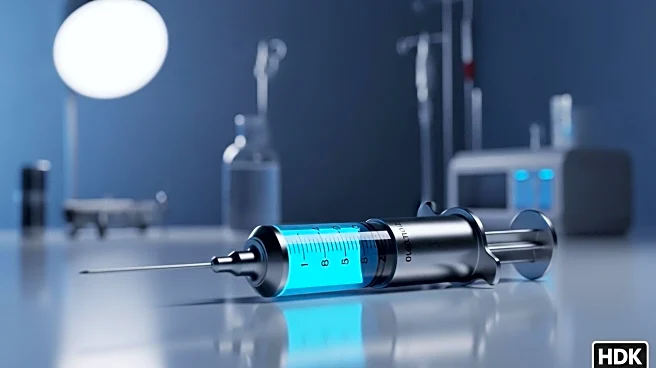What's Happening?
Pfizer has announced a most-favored-nation (MFN) deal with the White House, agreeing to offer all new medicines at MFN prices. This announcement was made jointly with President Trump and Pfizer CEO Albert Bourla. The deal is part of a broader strategy to address drug pricing and encourage domestic manufacturing. In other developments, uniQure has reported promising results for its gene therapy, AMT-130, which slowed Huntington's disease progression by 75% over three years. This breakthrough offers new hope for patients and is expected to lead to an FDA approval filing in early 2026.
Why It's Important?
Pfizer's MFN deal is significant as it aligns with government efforts to control drug prices and promote domestic production. This move could lead to more affordable medications for consumers and set a precedent for other pharmaceutical companies. The breakthrough in Huntington's disease treatment is equally important, as it represents a major advancement in gene therapy and offers hope for patients with this debilitating condition. If approved, AMT-130 would be the first genetic therapy for Huntington's disease, potentially transforming treatment options and improving patient outcomes.
What's Next?
Pfizer's MFN deal is expected to influence other pharmaceutical companies to consider similar agreements, potentially leading to broader changes in drug pricing policies. For uniQure, the next step is to file for FDA approval of AMT-130 in early 2026. If successful, this could pave the way for further advancements in gene therapy and encourage investment in research for other neurodegenerative diseases. The developments in both drug pricing and gene therapy highlight the evolving landscape of the pharmaceutical industry and the potential for significant impacts on healthcare access and innovation.










